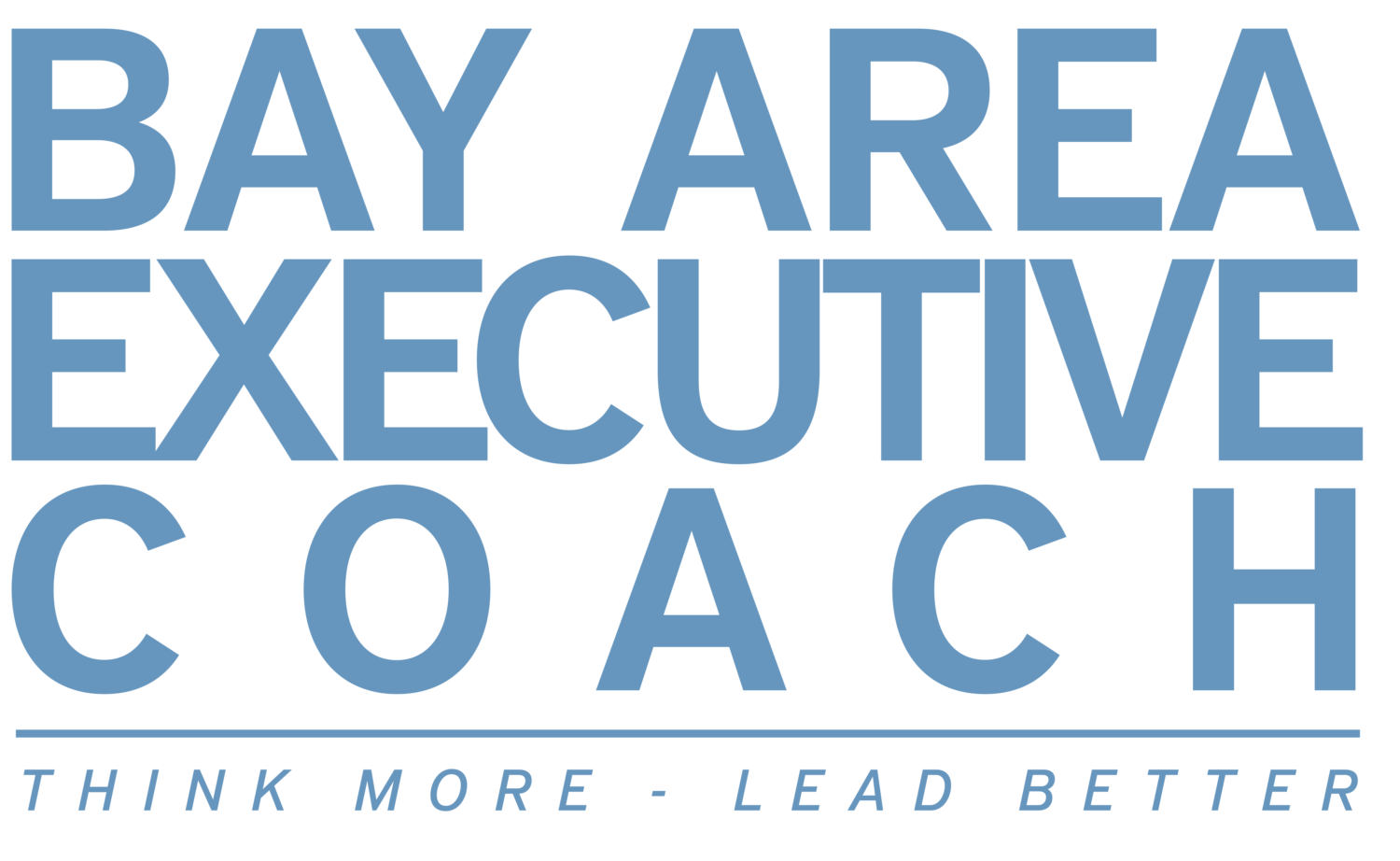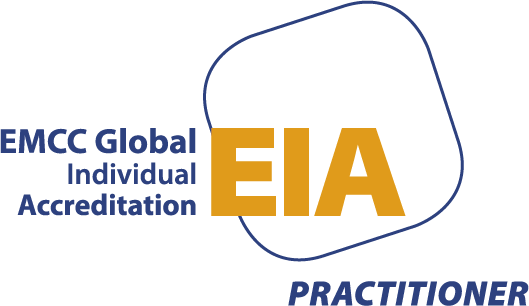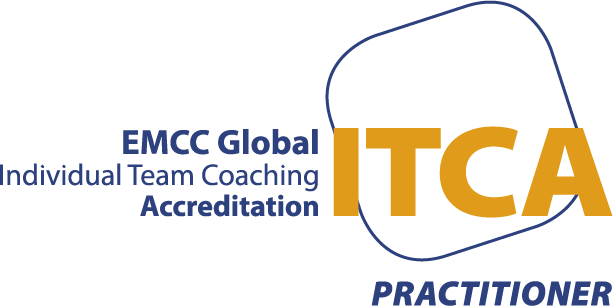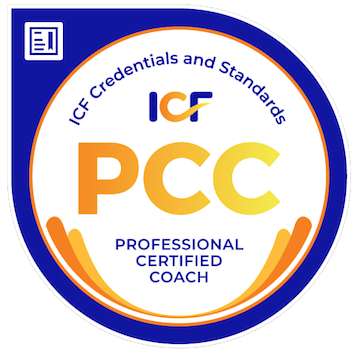“Executive Communication” is a form of organizational communication that often emanates from the CEO, but it could also come from other members of a company’s leadership team. It can be internally or externally focused.
Regardless of its form, executive communication is vital for any organization’s success. Its content is often scrutinized and it can have far reaching effects. A leader’s words, and how they’re delivered, have the power to influence, inspire, clarify, motivate, and open doors. Conversely, they can also alienate, confuse, infuriate and potentially ruin careers and cloud the organization’s future. 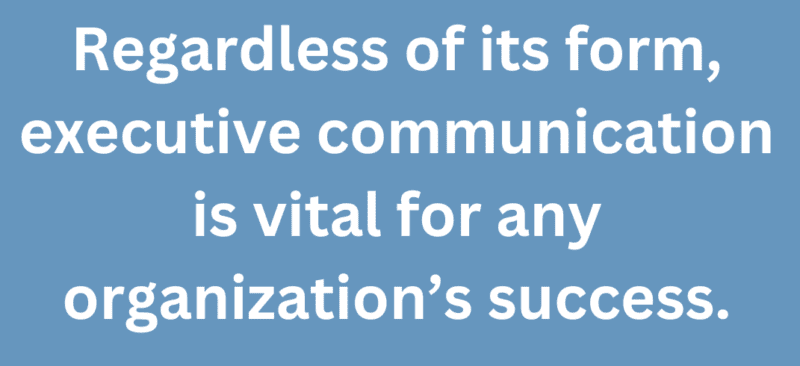
Experienced leaders understand the power of communication, and it’s not surprising that many larger enterprises have entire communications teams headed by executive communications managers. This trend has given rise to the popularity of coaches skilled in executive communication. They help leaders craft and deliver messages in ways that maximize their impact.
Why executive communication is important.
There are myriad reasons why excellence in communication pays lasting dividends.
1) Effective executive communication builds trust.
Trust is a key ingredient of any successful organization’s business culture, and a key way to build trust from the top down is through transparent communication and ownership. Executives who openly and honestly communicate what’s happening in the company, and who publicly take responsibility for their actions, build the trust that ultimately wins loyalty inside and outside the organization.
2) Effective executive communication boosts employee engagement.
A Gallup research poll showed that managers can make up to a 70% difference in employee engagement. By regularly communicating with employees, executives nurture a healthy company culture and inspire employees to consistently make genuine and concerted efforts towards excelling in their work. This is a sign of engagement. 
3) Effective executive communication improves team agility.
Effective leaders tailor their messaging to make sure it reaches everyone, regardless of their position within the organization. Such “broadcasting” increases clarity and confidence, which in turn work to speed up company processes and improve overall efficiency and team agility.
4) Effective executive communication is crucial for building a brand image
More than ever, the CEO, president, VP, or another public-facing person in the leadership team has become the voice of the brand. That voice significantly contributes to how the public perceives a company, its brand, and its values. Executive communication is therefore essential in building and maintaining brand credibility by projecting a strong and clear message based on core company values.
5) Effective executive communication is vital for crisis management
Communication never matters more than it matters in crisis management. The role of effective communication from the top in times of crisis is pivotal for successfully weathering the storm.
Prescient companies anticipate such situations and have a plan in place for handling internal and external crisis communication.
What Executive Communication training can do.
Some leaders are naturally effective communicators, but for most this is a skill to be acquired, honed, and effectively deployed.
Executive leadership skills training, often conducted by experienced coaches and trainers, is an ideal platform for busy executives to perfect their communication skills on many levels. While programs and training approaches can differ, executive communication training typically addresses these fundamentals:
1) Transparency
No matter how skilled the communicator, people can detect a lack of authenticity. Transparent communication is essential to the free flow of information and trust, but it also makes a leader a lot more likable in the eyes of employees and colleagues. Transparency fosters trust, and trust is the cornerstone of lasting success.
2) Message Clarity
Effective executive communication is more than simply reciting facts and figures. It must do so in a compelling and memorable way that can be repeated without dilution of the original message. Executive communication training teaches leaders to be clear and succinct so that anyone can understand the message and share it with others as middle managers often must do.
3) Active Listening
Good communication involves much more than great speaking. It must be equally matched with highly focused listening skills. When an executive perfects the art of active listening, they can better calibrate their messaging to match their intended audience. Furthermore, by lending an ear to employees and asking for their regular feedback, leaders can learn a great deal. Executives can take an assessment to determine their listening habits and learn new ways to elevate their listening skills. It may also require a new perspective on the value of listening versus speaking.
3) Empathy
Empathy may be the single most important leadership skill in today’s world, fundamental to
strengthening relationships with staff, contributing to a healthy company culture, and boosting employee engagement. Developing empathy is therefore a core component of executive communication training.
4) Audience Awareness
Good communication should be crafted with keen awareness for the nature and needs of its intended audience. By delivering a resonant message, such tailored communication can go a long way to advancing the leader’s agenda in a way that resonates with the listening audience.
5) Create Custom Communication Plans
Executive communication takes many forms today: town hall meetings, emails, videos, podcasts, print documents, press conferences, etc. Creating an ongoing plan for managing a large stable of internal and external communications can be daunting, especially for leaders who likely already feel overloaded. A communications coach can support the leader in determining how to best use the various channels of communication to get the message across again and again in a unified manner. 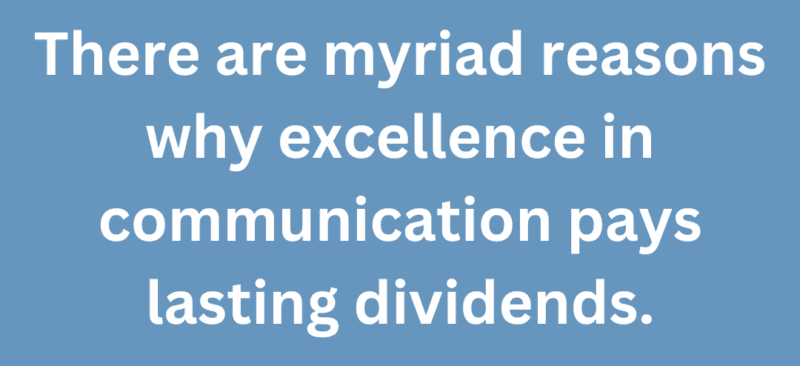
Take the Initiative
Even if an executive considers him or herself to be a skilled communicator, there are always fresh ideas and insights to be gained from taking executive communication training. Successful executive communication can immeasurably grow a business, while poor communication or, much worse, a lack of communication, can surely harm it.
Excellence in communication has often been a key element of our executive coaching services. While we are not media communications coaches, we can help a leader prepare and deliver succinct and compelling messages that resonate with various audiences to great effect. We’re also positioned to help leaders improve in their ability to have difficult conversations, communicate with empathy and exercise excellent listening skills. Contact us to share where you would like to improve your communications and we’ll go from there to begin supporting your goals. Or take a look at our Executive Coaching services to learn more. You can also download our free ebook in, “The Authoritative Guide To Executive Presence” here.
Unlock the secrets to a more motivated and productive workforce! Dive into our article, “6 Steps to Raising Employee Engagement,” and discover actionable strategies to elevate your team’s performance.
Photo copyright: Featured photo is from ©Kampus Production via Pexels. Secondary photo is from ©Pavel Danilyuk via Pexels.
